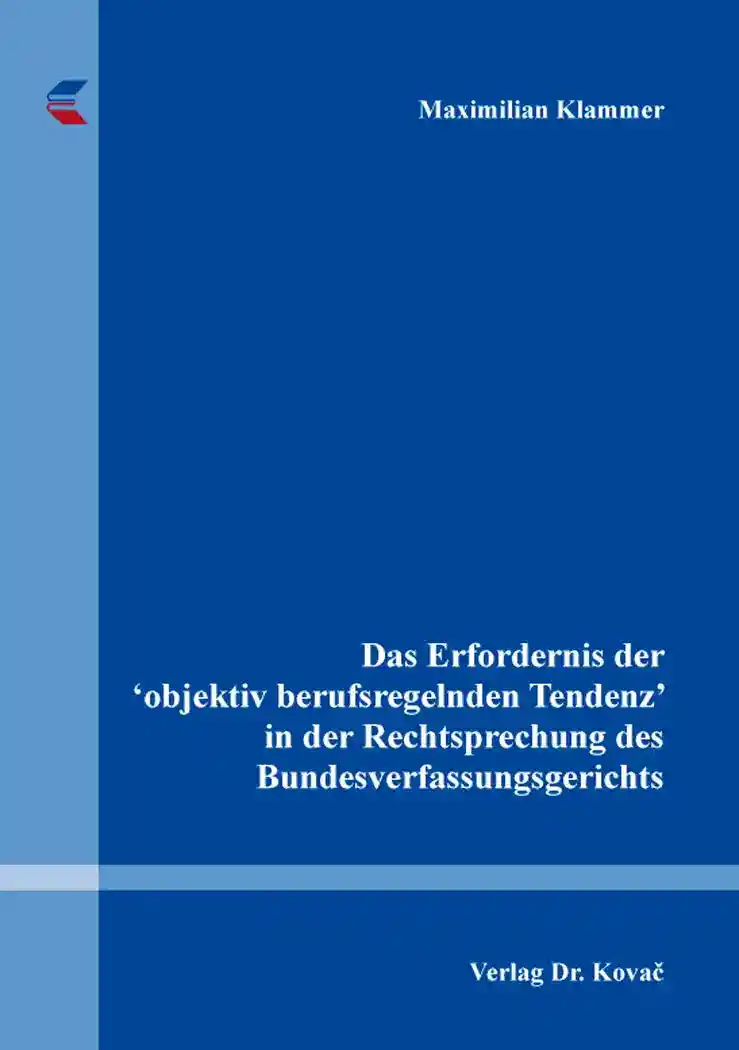Maximilian KlammerDas Erfordernis der ‘objektiv berufsregelnden Tendenz‘ in der Rechtsprechung des Bundesverfassungsgerichts
Verfassungsrecht in Forschung und Praxis, volume 134
Hamburg 2017, 266 pages
ISBN 978-3-8300-9777-8 (print) |ISBN 978-3-339-09777-4 (eBook)
About this book deutschenglish
Choice and practice of occupation, being a significant act of self-determination of individuals, are specially protected by article 12 of the Basic Law. Nevertheless, they are affected by the happenings on the free market and by a variety of political measures. A particular importance therefore comes to the question as to when a measure which has a direct influence on the decision on the "whether" and "how" of professional activities must be checked for proportionality by the standard of Article 12 of the Basic Law.
In order to answer this question, the Federal Constitutional Court uses the "objective tendency to regulate profession". This work examines this dogmatic figure and its convincing power. It shows how the objective tendency to regulate profession is determined. Furthermore, it shows how it has developed from a requirement for the quality of interferences of taxes to the decisive criterion for the quality of interferences of all cases of indirect impairments of the freedom of occupation.
In the core part of the study, the decisions in which the Federal Constitutional Court examined the quality of the measure impairments using the figure of the "objective tendency to regulate profession", are systematically evaluated and examined in particular with regard to the question of whether the tendency to regulate profession was determined in a consistent way.
Subsequently, an examination of the criticism of the jurisprudence of the Federal Constitutional Court in the legal literature is made. Under examination is the accusation, that the figure of the objective tendency to regulate profession is not applied uniformly, following central idea. Furthermore, examined is the criticism that the objective tendency to regulate profession had no dogmatic foundation.
Finally, examined is the importance of the fundamental right of property of Article 14 of the Basic Law in cases in the jurisprudence of the Federal Constitutional Court where an objective tendency to regulate profession is there.
Keywords
BerufsfreiheitBerufsregelnde TendenzBundesverfassungsgerichtBundesverfassungsgerichtsentscheidungEingriffsbegriffGrundrechteGrundrechtsdogmatikGrundrechtseingriffLenkungswirkungRechtsprechungRechtssprechungsübersichtSchutzbereichVerfassungsrechtIhr Werk im Verlag Dr. Kovač

Möchten Sie Ihre wissenschaftliche Arbeit publizieren? Erfahren Sie mehr über unsere günstigen Konditionen und unseren Service für Autorinnen und Autoren.
